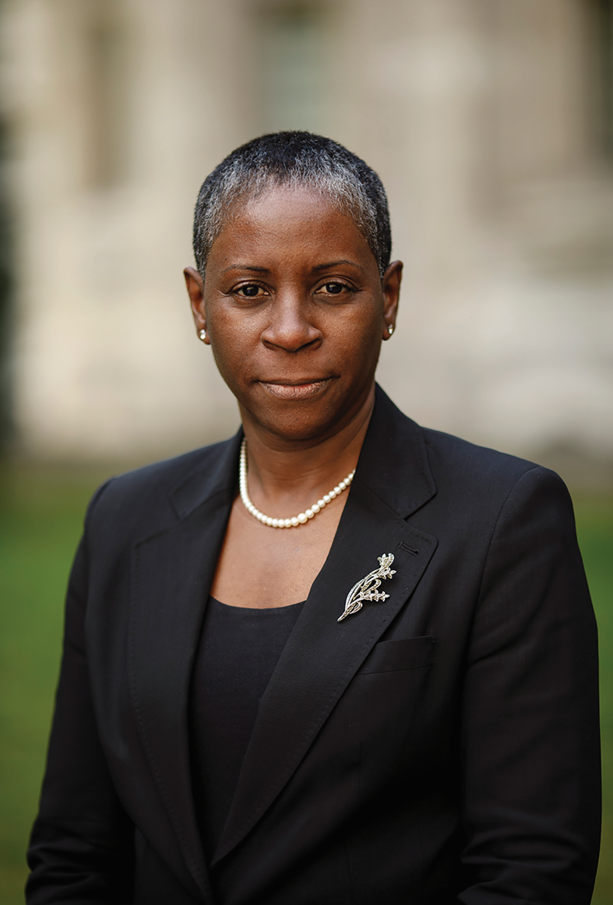
The ballot closes on Sunday, with the results announced the following day.
Lewis, who was sworn in as Lord Chancellor last week, offered an extra £54m. Under the revised offer, the proposed 15% fee increase would apply to the ‘vast majority’ of cases currently in the crown court. Other measures to tackle the backlog would be ‘explored’, such as ‘increasing early resolution of cases, reducing the number of ineffective trials and progressing cases between magistrates’ courts and the crown court’.
Meanwhile, criminal law solicitors are considering withdrawing their labour in protest at the 9% increase offered to them.
Law Society president I Stephanie Boyce (pictured) said: ‘Reaching a compromise with criminal barristers but not providing parity for solicitors is short-sighted given it is solicitors who make up the greater part of the criminal defence sector.
‘The independent review the government commissioned made clear solicitors are in an even worse financial situation than their counterparts. Solicitors are the backbone of the criminal justice system, advising their clients from the first moment at the police station, through to passing of a sentence.
‘They are not taking short-term disruptive action. They are simply leaving the profession permanently, in ever greater numbers because the work is not financially viable. And yet the government is currently proposing only a 9% rate increase for solicitors, 40% less than the 15% being offered to barristers, and far less than the bare minimum the Bellamy report concluded was needed for criminal defence solicitors’ firms to remain economically viable.’
Boyce warned: ‘If solicitors do not get parity on the bare minimum 15% recommended by Lord Bellamy, the MoJ will have made it clear that there is no future in criminal defence practice and we will advise our members not to undertake this work. No responsible organisation could truthfully advise otherwise.’
In his swearing-in speech last week, Lewis said he wanted ‘to explore options for reforming the Probation Service’ and was ‘determined to make public protection the overriding factor in parole decisions’.









